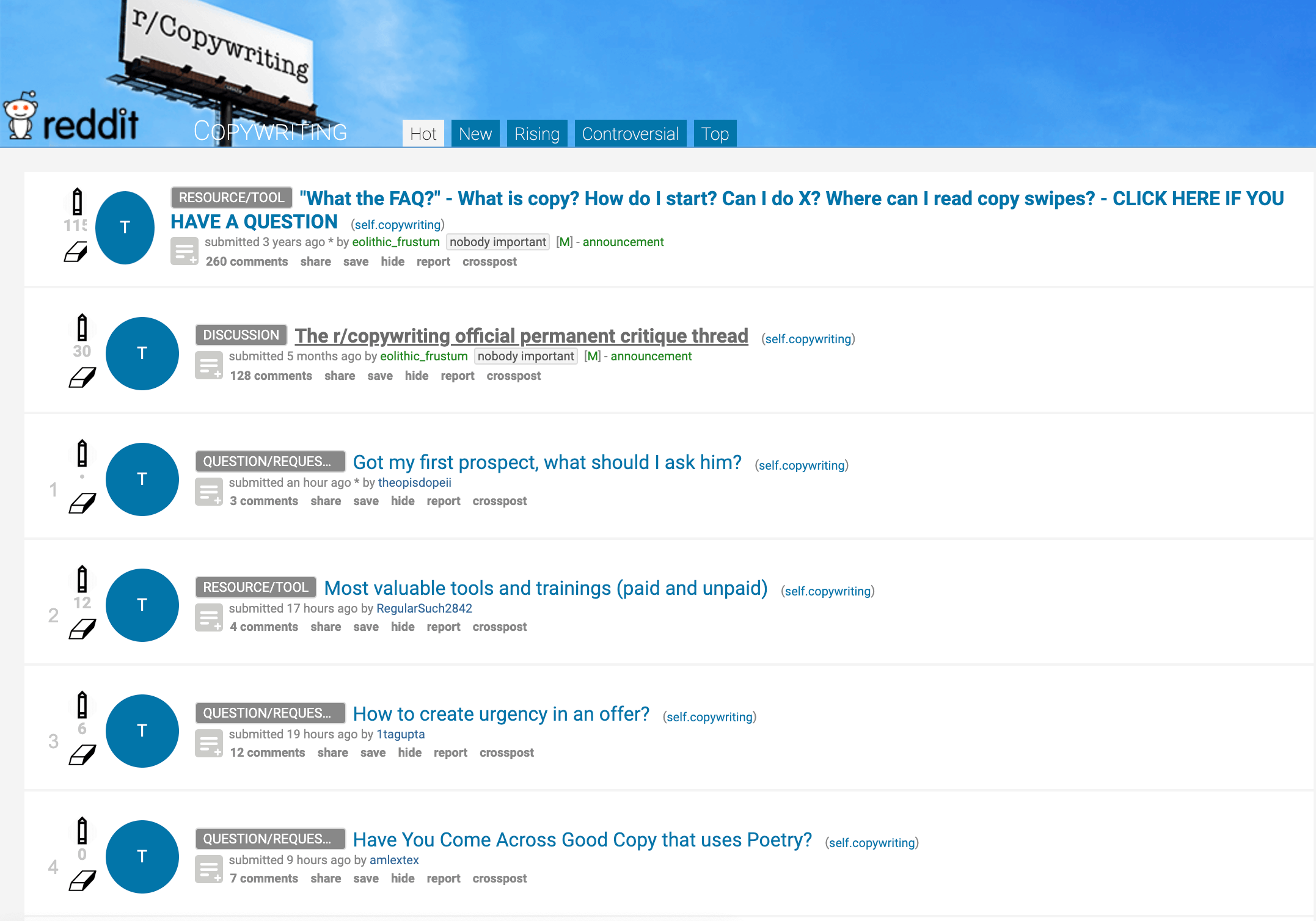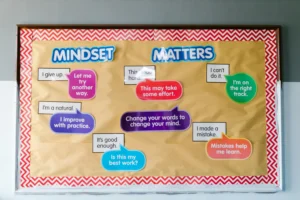Whether you’re fresh out of school or switching careers, having a killer copywriting portfolio is your ticket to landing clients.
However, it’s easier said than done. I see it with my students quite often… they’re not sure how to create a writing portfolio or make samples.
If that feels familiar, don’t sweat it. I’m here to guide you every step of the way. From picking your niche to writing samples, ahead you’ll learn how to make your very own portfolio. No experience required!
Understanding the Basics of Copywriting
Alright, let’s start with the basics. Great sales copy is the secret behind every successful ad, website, or social media post. Think of it as the art of using words to captivate, persuade, and make people take action.
However, copywriting isn’t just about stringing fancy words together. It’s all about knowing your audience inside out, tapping into their desires, and giving them an irresistible offer.
It comes in all shapes and forms too. You can write sales copy for websites, physical advertisements, email, social media, pay per click campaigns, and more. The options are endless in a copywriting career.
Identifying Your Niche and Target Audience
When it comes to creating a copywriting portfolio, you first have to know where you fit in. What are your strengths, weaknesses, and previous experience? This will shape the industry you pursue.
So, grab a cup of coffee and do some honest reflection. What gets your heart racing? Is it fashion, fitness, finance? Maybe you’re all about pet grooming or eco-friendly living.
Once you’ve nailed down your niche, it’s time to zero in on your audience. Who are the people you’re writing for? What keeps them up at night, and what makes them happy? The more you know about your audience, the better you can speak their language.
Now, I know what you’re thinking, “How do I research my audience?” Watch my video on the copywriting research process and you’ll be an expert in no time.
Building Your Copywriting Portfolio Content
It’s time to roll up your sleeves and start flexing those writing muscles. But hold your horses, we’re not just adding anything to a writing portfolio. You need top-shelf material that’ll make clients do a double-take.
Keep in mind that diversity can be great. You want your portfolio to show off all of your work, like ads, blog posts, social media posts, you name it. Unless you plan to only write a specific type of copy, your portfolio should show a variety of industries and formats.
Don’t have experience or writing samples? No problem. Here’s what I want you to do:
- Start blogging on Medium.com or LinkedIn. This will net you articles to place in your portfolio very quickly.
- Offer local businesses free copywriting services once or twice to get some good samples under your belt.
- Visit www.swiped.co and re-write famous advertisements in your own way.
- Write mock advertisements for your favourite brands.
But here’s the kicker – quality over quantity should be prioritized. One stellar piece of copy is worth a hundred average ones.
Creating a Professional Online Presence
One of the biggest mistakes I see new copywriters make is not having a digital footprint and brand. Clients want to work with writers that publish content, have a website, and put in the effort to grow their business.
I’ve had several clients tell me that they chose me over other writers because of my website and brand. It’s that impactful.
First things first, you need a kickass website. None of that cookie-cutter template nonsense – we’re talking about a site that screams, “I’m the real deal.” Whether you’re a coding whiz or a tech newbie, there are plenty of platforms like WordPress or Squarespace that’ll make you look like a web wizard.
Your website should also be as easy on the eyes. Think clean layouts, engaging colors, and graphics that’ll make visitors want to read more.
86% of clients want to learn about your services most importantly. So, fill that website with high-quality content. Show off your portfolio, add contact info, and don’t forget to mix in some of your personality. People like working with people.

Leveraging Freelance Platforms and Networking
Let’s be real. You have bills and need to make money. Places like Upwork, Fiverr, and Reddit are great places to start looking for copywriting gigs. And, they help you create portfolio pieces.

My usual advice is that freelance job sites are an okay place to start, but I want you to move off of them as fast as possible. Sure, get some income rolling in and your feet wet. But, build your personal brand and learn outreach to scale to something serious.
Wherever you are applying for gigs, you need to stand out from the crowd. Your profile is your business card; show off your skills, portfolio, and write a bio that explains how you help businesses.
Networking is crucial too. Rub elbows with fellow freelancers, join online communities, and attend industry events. You never know who you might meet and what it’ll turn into.
I can’t tell you how many times people I’ve met have referred me to leads and opportunities over the years. Your network is truly your net worth.
Showcasing Your Work and Collecting Testimonials
Do you know the science behind why we create portfolios as copywriters and freelancers? It’s because of a little thing called social proof. The concept is that we tend to trust people who have previous recognition from others.

It makes sense… if you’re looking to hire a copywriter and other companies have had good experience with a particular writer, you’ll feel at ease.
If you can also see previous work, you can also directly grade their writing and marketing capabilities.
So, don’t be shy about showing off any of your wins. If you’ve got awards, accolades, or testimonials, add them to your portfolio.
Wrapping Up How to Create a Copywriting Portfolio
Building a copywriting portfolio is a critical step in being a successful freelancer. But, I know it can be complicated and intimidating, especially if you have zero experience.
Here’s a recap of today’s article and the steps I suggest taking:
- Your portfolio is your ticket to getting clients and opportunities. Don’t underestimate how important it is.
- If you have no experience, write for free, create a blog, or write mock advertisements to show off your skills.
- Find your niche and audience. This allows you to become an expert in a specific industry.
- Freelance platforms are your friends for finding gigs when getting started.
- Network like it’s your job. Join online communities, be active on social media, and attend in-person events.
- Showcase your work and testimonials using a platform like WordPress, Cardd, etc.
Want coaching and access to a community of writers? Join my copywriting academy today!














